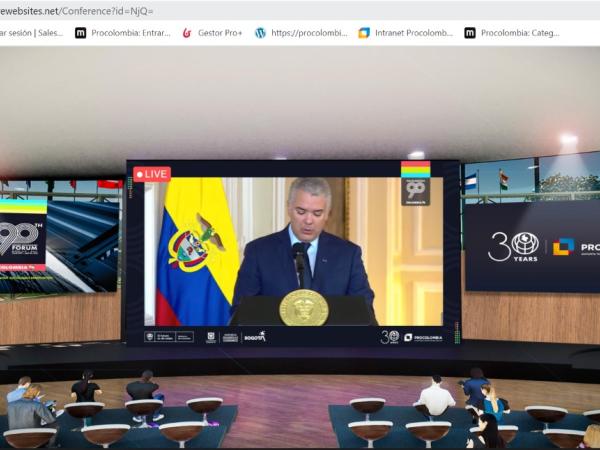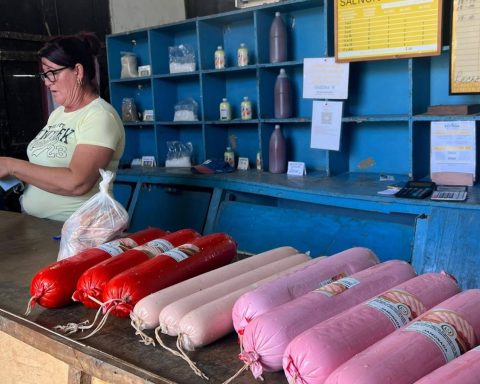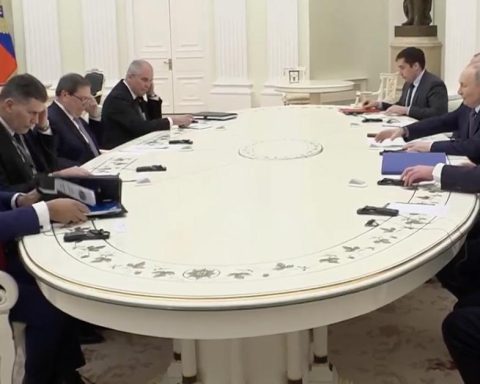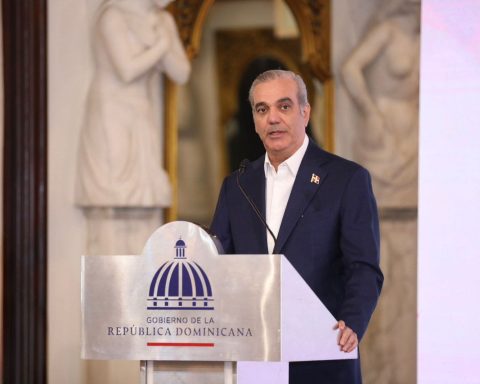
Time is running out and the Constitutional Convention (CC) –in the midst of a whirlwind of votes in committees and in plenary session– seeks formulas to generate the greatest possible agreements that guarantee the advancement of proposed regulations, after the majority rejection of several articles that They have generally passed through the Plenary, from different committees. And although some spoke of a “failure” of commissions -such as the Political System, which had a 97% rejection of its report-, others qualified and prefer to speak of a “necessary reality check”, expected, given the diversity of views and realities within the CC, as well as the inexperience of some in political negotiation and, of others, in one very different from the one known in Congress.
With the clock ticking down, open and broad conversations began yesterday to seek agreements on the replacement report for the Political System that the Plenary must vote on in the coming days, which could continue today. And although some recognized that this step was taken late, they transversally valued this effort to which all sectors have joined. Success will depend, they say, on how much everyone is willing to give in or talk so that the formulas of Congress and the Executive, among others, are not reworked, leaving the changes to the central political system in the new Constitution in a definitive stumbling block.
In any case, in the constituent body they identified several knots that could be confusing the way, knots as diverse as the Convention itself. In general, and more in context, they agreed from all sectors that the time factor is important, because given the long voting days, more committee sessions, little space is left for them to review in advance the reports issued by committees and that arrive to vote in plenary. In addition, some pointed out that sometimes resources are limited in order to have advisors with greater expertise in certain more complex issues.
But there are also the political knots, which vary according to the perspective of each sector, although they can also vary according to each commission, which –they point out– can be resolved or at least improved:
1. Integration of commissions
The diagnosis that was made about the commissions is that each constituent joined the commission according to their personal interests or competencies, which generated that in some there was a more “activist” vision of the issues. This, for some, meant that this vision was not projected to be similar in plenary, having a strong blow of reality at the time of the vote. As an example, several mentioned what happened with the first Environment report, which had several of its articles rejected. In this line, some constituents who are not part of that commission spoke of a certain “entrenchment”, over a systemic view. But from that commission, others put the point in members who do not handle the breadth of environmental issues in depth, with ignorance, for example, in the reality of wetlands, which for them also generates knots in the agreements.
On the above, the constituent mauritius affirmed that in the Environment commission there was “an excess of voluntarism from the groups that control the majorities, added to the fact that there is little knowledge of some of the members of that commission of the issues that are being debated. A lot of slogan, little depth “.
Although it is not an idea installed today as a majority, there are some constituents who slid the door to modify some commissions or their coordinators, to better promote a dialogue and binding agreements with the Plenary, something in which others do not agree.
2. Personalisms and lack of coordination in the same group
“Each constituent came with its flag of struggle, and wants to defend it to the end, sometimes without yielding even a comma. For example, environmentalist constituents cling to concepts; feminist constituents want parity to be in every norm; indigenous constituents, the same with plurinationality; the parties defending their interests. That’s normal, and that’s fine, but in a political negotiation we all have to give in at some point, or we’re simply never going to get anywhere,” emphasized an independent constituent, who stressed that there are particular ideas that are not seen in the perspective of a complete system.
In several groups they also assure that there are personalisms within each of the groups, who seek to impose ideas rather than promote dialogue or negotiation. In addition, in some groups within the CC there have been differences and breaks within the same groups, which has sometimes complicated agreements and projections in voting. Also, members of commissions have joined pre-agreements, but without necessarily having the support of their group.
The constituent of the Mapuche people, Adolfo Millaburemphasized that “we must open up to dialogue. We are at a point where we cannot waste time on differences that are of form and not of substance. In some commissions, egos have played a trick, also personalities. It is easier to sometimes work alone, in the academy for example, where no one questions a paper, but here they have to enter into a democratic dialogue, knowing that their thesis or theories are not always going to be received by the entire Convention in the same way”.
3. Excess indications
Especially in the Political System commission, they expressed resentments with the extension of the debate before taking the first report to the Plenary. In fact, it was the longest report, with 96 articles. That, according to some constituents, is due to the lack of agreement on some points, but also in the number of indications that were presented during the debate. Left-wing and independent constituents particularly targeted the center-right and the right, whom they accused of presenting a large number of indications to delay the debate. Some, yes, expressed nuances, assuring that in RN and Evopoli there is a greater willingness and possibility to talk, unlike those of the UDI and the hardest sectors. Likewise, they assured that the former Coalition agreed to modify some indications, which also generated a different text from the one that had been generated in the initial pre-agreements to the Plenary.
The constituent of RN Christian Monceberg responded that “as a sector we are going to work until the last day, doing our part accordingly. We were chosen to be in the CC and therefore we are not going to give up for a minute that our proposals, which represent many people who voted for us, be in the Convention. Obviously that can delay the voting, but I can say exactly the same about the proposals and indications made by people on the left. I think that is part of the debate, that is what is democratic , the rest would be totalitarian, it would be to impose a vision arguing that since we are a minority we have no right to do so”.
4. Pressure from parties and constituted power
Especially in the Political System Commission, where it is debated whether or not to maintain a second chamber similar to the Senate, several voices have underlined the role that the parties had in the disarmament of some pre-agreements. This is how independents from different groups argued that the withdrawal of the constituents of political parties towards a defense of the Senate and of some formulas of the executive has been evident. The rapprochement in the voting between the Collective of Approval, the Socialist Collective, part of the Broad Front and Let’s go for Chile have taken place within the framework of said report. Likewise, the non-party constituents emphasized that “the pressure of senators from each community is noticeable” so as not to lose the second chamber, with strong powers.
The constituent of the Plurinational and Popular Coordinator, Tania Madriaga, considered that these pressures are a reality. “There are the actors that respond to the interests of the powers of the duopoly that has governed us for the last 30 years: the right has a conservative pressure, which seeks that there are no changes, maintain the 1980 Constitution and its power structures. On the other On one side is the former Concertación, which seeks to perpetuate a system that allowed it to govern with economic privileges and popular exclusion. Finally, there are the indigenous and popular actors, who more than pressure feel a responsibility to respond to popular and multinational demands, which are the that brought us here.”
“We are all going to have to give in, and not in the sense of giving up, but rather incorporating the diversity of interests to achieve a result that truly represents a social majority,” he stressed.
the constituent Adolfo Millaburaccused that “the established power has done its thing in the last 20 days, the constituted power has been too noticeable. The Senate is putting a lot of pressure, all the business community, through public calls, columns. The other thing that plays against it is the microclimate of Twitter. Here sometimes I have seen a decision that was discussed with a group change, and before voting a Twitter comes out and they get nervous and let themselves be influenced. “
Benito Baranda, from Non-Neutral Independents, emphasized the reality of the Political System Commission, “where the distribution of power is at stake.” “That distribution of power, of course, generates high tension. The new way of assembling the power structure may be to gain access to others who did not have access in the past, and that for those who hold power today, may be a threat,” he stressed, adding that in order to deal with the rejection of reports, a lot of work and yield must be done so that the norms are worked on from the commission with a view to achieving 2/3 in plenary.
mauritius He added that “it seems to me that there are pressures from certain political parties and groups, to which the people who are part of this commission ascribe, and that they are seeing the design of the Political System based on the way in which in that context the forces go to be able to better influence the decision-making of the State. That is a bad approach when a new Constitution is being written. We have to place principles above interests in our work”.
On the other hand, the constituent Christian Monckeberg refuted. “What interest group does not intervene in the fate of the Convention? Or are we going to say that the social movements, the animal activists, the indigenous, those that promote feminism, those that promote religious groups, do not pressure – in a good way , legitimately – to their conventions, so that their issues are reflected? Why shouldn’t the parties be able to do that? It’s legitimate for it to be done, the point is that it be done transparently. If someone feels pressured to say so, I I haven’t felt pressured,” he stressed.
For now, in the committees they assure that the advances towards the agreements will be less sheared than in the first reports that have passed to the Plenary, because there is already a kind of thermometer installed of how the plenary is moving and tilting, and because they believe that the Broad rejection of articles from different groups puts more pressure on them to yield and reach reciprocal agreements. Some say that these days and the second votes will also be an exercise in regaining confidence, which was weakened by the non-compliance with certain pre-agreements that had been installed in some commissions.

















